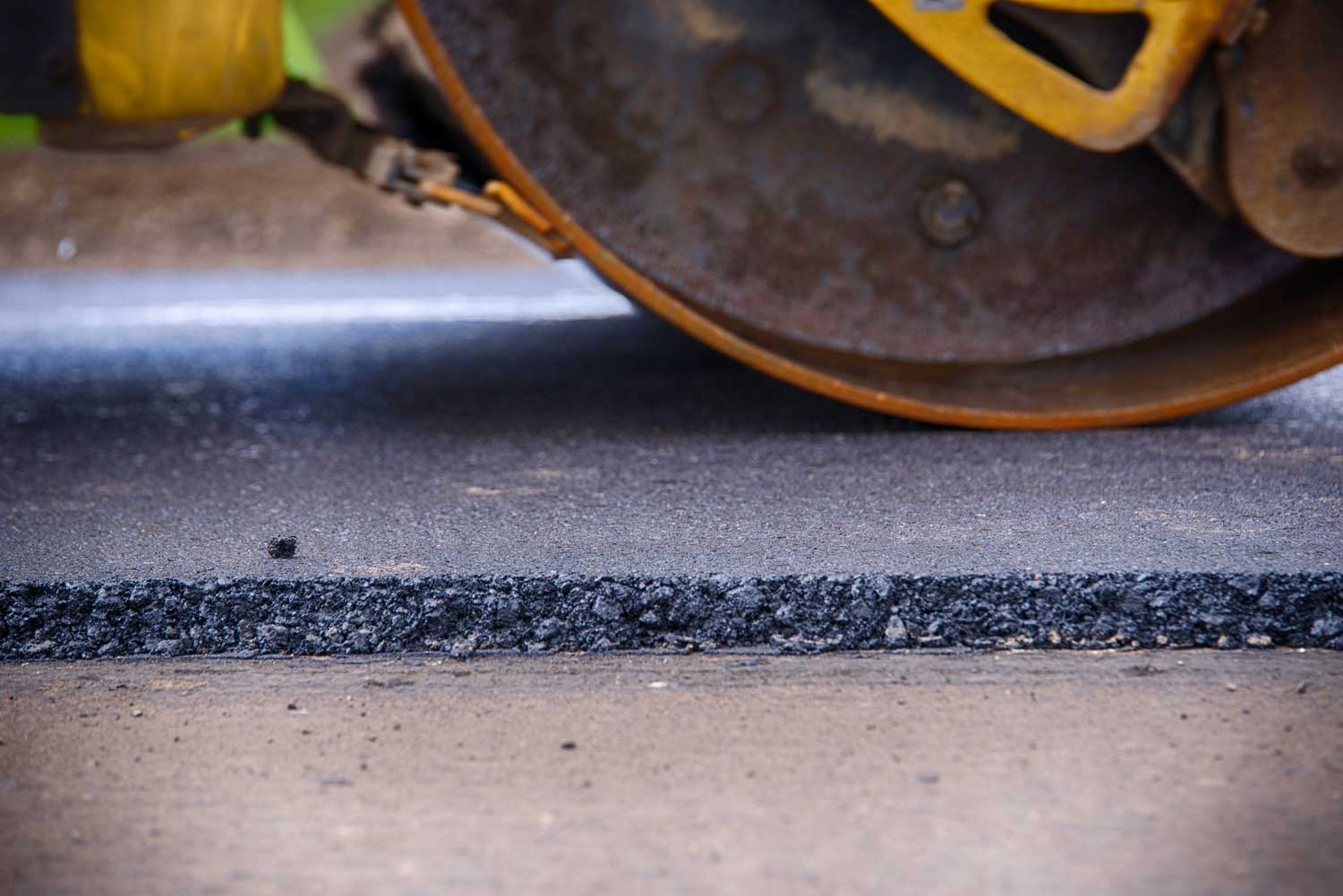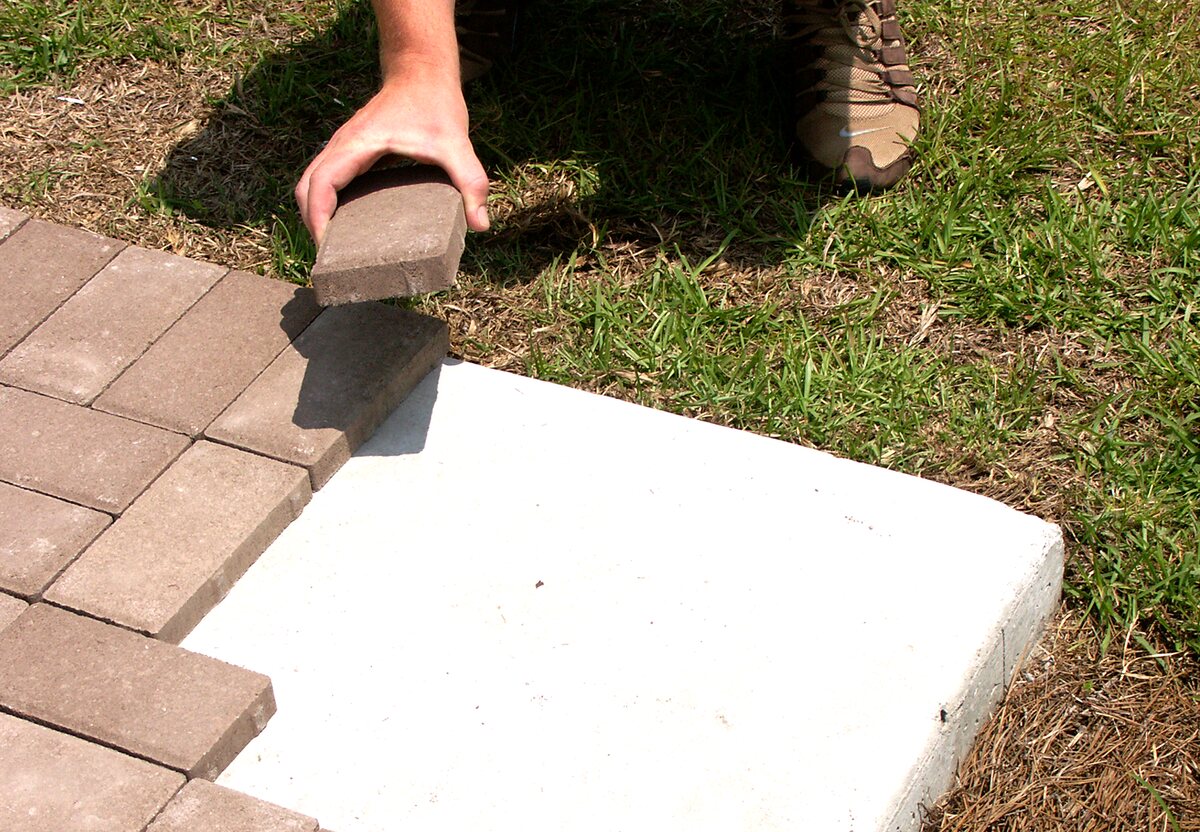

Articles
How Much Weight Can An Asphalt Driveway Hold
Modified: December 7, 2023
Discover the weight capacity of asphalt driveways in this informative article. Find out how much weight they can hold and ensure your driveway can handle the load.
(Many of the links in this article redirect to a specific reviewed product. Your purchase of these products through affiliate links helps to generate commission for Storables.com, at no extra cost. Learn more)
Introduction
Welcome to the world of asphalt driveways! If you are a homeowner or business owner, chances are you have or are considering installing an asphalt driveway. These smooth and durable surfaces are popular for their aesthetic appeal and longevity. However, one crucial factor that needs to be taken into consideration when it comes to asphalt driveways is their weight-bearing capacity.
Asphalt driveways are designed to withstand the weight of vehicles, whether it’s the family sedan or a delivery truck. Understanding how much weight an asphalt driveway can hold is essential for maintaining the integrity of the surface and preventing any potential damage.
In this article, we will explore the factors that affect the weight capacity of an asphalt driveway, how to calculate weight limits, and ways to improve the weight capacity. Additionally, we will discuss potential risks and damages that can occur when exceeding the weight limits.
So, let’s buckle up and dive into the world of asphalt driveways and their weight-bearing capabilities!
Key Takeaways:
- Understanding the weight capacity of your asphalt driveway is crucial for preventing damage, ensuring safety, and preserving its longevity. Factors like thickness, base quality, and drainage play a significant role in determining weight limits.
- Exceeding the weight capacity of your asphalt driveway can lead to surface deformation, cracking, drainage issues, safety hazards, and costly repairs. Adhering to weight limits and regular maintenance are essential for safeguarding the integrity of your driveway.
Read more: How Much Weight Can Concrete Driveway Hold
Understanding Asphalt Driveways
Before we delve into the weight-bearing capacity of asphalt driveways, let’s first understand what asphalt driveways are and why they are a popular choice for homeowners and businesses alike.
Asphalt driveways are made from a mixture of aggregate (stone, sand, or gravel) and a binding agent called asphalt cement. This combination creates a strong and durable surface that can withstand the weight and traffic of vehicles. The asphalt is heated and poured onto a prepared base, and then compacted to create a smooth and even driveway.
One of the key advantages of asphalt driveways is their ability to handle extreme weather conditions. They are known for their flexibility, which allows them to expand and contract with temperature fluctuations, preventing cracking and minimizing damage caused by freeze-thaw cycles.
Another benefit of asphalt driveways is their relatively low cost compared to other options, such as concrete or pavers. They are also quick to install, allowing homeowners to enjoy their new driveway within a short period.
Furthermore, asphalt driveways offer excellent traction, making them safe for vehicles and pedestrians. The dark color of the asphalt also helps to melt snow and ice faster, reducing the risk of slips and falls during wintertime.
Overall, asphalt driveways provide a durable, cost-effective, and aesthetically pleasing option for homeowners and businesses looking to enhance their curb appeal and create a functional space for vehicles.
Factors Affecting Weight Capacity
Several factors come into play when determining the weight capacity of an asphalt driveway. Understanding these factors is crucial to ensure that the surface can withstand the intended load. Let’s explore the key factors that affect the weight capacity of asphalt driveways:
- Thickness of the Asphalt: The thickness of the asphalt layer plays a significant role in determining the weight capacity. Generally, thicker asphalt can handle heavier loads. The recommended thickness for residential driveways is typically around 2-3 inches, while commercial driveways may require a thicker layer.
- Quality of the Base Materials: The base materials that serve as the foundation for the asphalt driveway are essential for supporting the weight. A solid and well-compacted base made of gravel or crushed stone provides stability and strength to the surface. The quality and thickness of the base materials directly impact the weight capacity of the driveway.
- Subgrade Conditions: The condition of the underlying soil, known as the subgrade, is crucial for the overall stability and weight capacity of the driveway. If the subgrade is weak or consists of soft or clay-like soil, it can lead to sinking and damage under heavy loads. Proper compaction and preparation of the subgrade are essential.
- Drainage and Water Management: Adequate drainage plays a vital role in maintaining the structural integrity of an asphalt driveway. Poor drainage can result in water seeping through the surface, leading to erosion and weakening of the base materials. It is essential to ensure that the driveway has proper slope and drainage systems in place to avoid compromising the weight capacity.
- Climate and Temperature Changes: Extreme weather conditions, such as high temperatures or freezing temperatures, can impact the weight capacity of an asphalt driveway. Hot weather can soften the asphalt, making it more susceptible to deformation under heavy loads. On the other hand, extreme cold can cause the asphalt to become brittle and prone to cracking. Proper asphalt mix design and installation techniques, considering the climate, are crucial for maintaining the weight capacity.
These factors interact with each other and must be carefully considered during the design and construction of an asphalt driveway to ensure optimal weight-bearing capacity. Consulting with a professional contractor who specializes in asphalt driveways can help assess these factors and determine the appropriate weight capacity for your specific needs.
Load-Bearing Capacity of Asphalt
The load-bearing capacity of an asphalt driveway refers to the maximum weight that the surface can safely bear without experiencing damage or excessive deformation. It is essential to understand the load-bearing capacity to prevent potential issues such as cracking, sinking, or rutting.
The load-bearing capacity of an asphalt driveway is determined through various tests and calculations that take into account factors like the thickness of the asphalt, the quality of the base materials, and the overall design of the driveway. These tests help determine the maximum weight load that the pavement can support.
Typically, when designing an asphalt driveway, the load-bearing capacity is specified in terms of the number of equivalent single-axle loads (ESALs) it can handle. An ESAL is a standardized unit of measurement used to represent the cumulative weight of a vehicle with a single axle. For example, a driveway with a load-bearing capacity of 10,000 ESALs can withstand the weight of 10,000 vehicles with a single axle.
The load-bearing capacity of an asphalt driveway also depends on the intended use and the expected types of vehicles that will be using the driveway. Residential driveways generally have lower weight requirements compared to commercial or industrial driveways that might experience heavier vehicle traffic or the presence of heavy-duty trucks and equipment.
It’s important to note that exceeding the load-bearing capacity of an asphalt driveway can result in various issues, including deformation, rutting, premature deterioration, and even structural failure. It’s recommended to consult with a professional contractor or engineer familiar with asphalt pavements to determine the appropriate load-bearing capacity for your specific needs.
Regular maintenance and inspections also play a vital role in preserving the load-bearing capacity of an asphalt driveway. Periodic sealcoating, crack sealing, and proper drainage management can help extend the lifespan and maintain the structural integrity of the pavement.
Overall, understanding the load-bearing capacity of an asphalt driveway is crucial for ensuring its long-term durability and performance. By considering the specific factors that affect weight capacity and consulting with professionals, you can ensure that your driveway can safely accommodate the intended traffic load without compromising its integrity.
To ensure your asphalt driveway can hold the weight of vehicles, it’s important to properly compact the base and use the appropriate thickness of asphalt. A professional installation and regular maintenance can also help maintain its strength.
Calculating Weight Limits for Asphalt Driveways
Calculating the weight limits for an asphalt driveway involves several factors and calculations to ensure the surface can safely bear the intended load. While it is recommended to seek the expertise of a professional contractor or engineer for accurate calculations, here are some general guidelines to consider:
1. Determine the Design Life: The design life refers to the expected lifespan of the driveway. Residential driveways typically have a shorter design life compared to commercial or industrial driveways. It is important to consider this factor as it affects the overall weight capacity requirements.
2. Assess the Traffic Load: Determine the types of vehicles that will be using the driveway, their average weight, and the frequency of traffic. This information is crucial in determining the load-bearing capacity needed for the asphalt pavement.
3. Determine the Required Thickness: The thickness of the asphalt layer is directly related to its weight-bearing capacity. Take into account the design life and traffic load to determine the appropriate thickness of the asphalt pavement. Thicker pavements can generally handle heavier loads.
4. Consider the Subgrade Strength: Assess the strength and stability of the underlying soil (subgrade) on which the driveway will be constructed. If the subgrade is weak or compromised, it can affect the weight capacity of the asphalt pavement. Proper soil testing and preparation are crucial for accurate calculations.
5. Factor in Safety and Margin of Error: It is recommended to include a safety margin in the weight calculations to account for unexpected loads or variations in the actual traffic. This provides an additional buffer to prevent overloading the driveway and potential damage.
6. Seek Professional Guidance: Consulting with a professional contractor or engineer experienced in asphalt pavement design is highly recommended. They can assist in accurately calculating the weight limits based on the specific requirements and conditions of your driveway.
Remember, these calculations are general guidelines, and each asphalt driveway project may have unique requirements. Professional expertise and understanding the specific factors that affect weight capacity are essential for precise calculations.
By ensuring accurate weight limit calculations, you can maintain the longevity and performance of your asphalt driveway, preventing premature damage and costly repairs.
Read more: How Much Weight Can Attic Hold
Improving the Weight Capacity of Your Driveway
If you have concerns about the weight capacity of your asphalt driveway or you need to accommodate heavier loads, there are several steps you can take to improve its weight-bearing capabilities. Here are some effective ways to enhance the weight capacity of your driveway:
1. Reinforce the Base: The base layer of your driveway provides the foundation for the asphalt pavement. Strengthening the base by using thicker layers of compacted gravel or crushed stone can greatly improve the load-bearing capacity. This helps distribute the weight more evenly and prevents the driveway from sinking under heavy loads.
2. Increase the Thickness of the Asphalt Layer: A thicker layer of asphalt provides additional strength and durability to the pavement. Consider applying an extra layer of asphalt to increase the weight capacity of your driveway. Consulting with a professional contractor can help determine the appropriate thickness based on your specific requirements.
3. Reinforce with Geotextile Fabric: Geotextile fabric, such as geogrid, can be installed between the layers of the driveway to provide additional reinforcement. This fabric helps distribute the load and prevent shifting or deformation of the asphalt surface under heavy loads. It is especially beneficial for driveways with weak subgrades.
4. Improve Drainage: Proper drainage is crucial for maintaining the stability and weight capacity of your driveway. Poor drainage can lead to water accumulation, which weakens the base materials and can result in rutting or sinking. Ensure that your driveway has proper slope and drainage systems to minimize the risk of damage under heavy loads.
5. Regular Maintenance: Regular maintenance is essential for preserving the weight capacity and longevity of your driveway. Fill any cracks or potholes promptly, as they can weaken the surface and lead to further damage under heavy loads. Sealcoating the surface regularly can also help protect the asphalt from moisture and UV damage, preserving its strength and durability.
6. Choose Heavy-Duty Pavement: If you know that your driveway will be subject to constant heavy vehicle traffic, consider opting for a heavy-duty asphalt mix. These mixes are designed to withstand heavier loads and have increased durability. Discussing your specific requirements with a professional contractor can help determine the most suitable pavement option for your needs.
7. Monitor Weight Loads: It is important to be mindful of the weight loads that your driveway is exposed to. Avoid parking or placing heavy equipment or vehicles beyond the weight capacity of your driveway. Regularly assessing the conditions of your driveway and addressing any signs of wear or damage can prevent issues from escalating.
Remember, these measures can improve the weight capacity of your driveway, but it’s important to consult with a professional contractor to assess the specific requirements and conditions of your driveway. Their expertise will ensure that the appropriate steps are taken to enhance the weight-bearing capabilities and maintain the long-term integrity of your asphalt driveway.
Potential Risks and Damages
Exceeding the weight capacity of an asphalt driveway can lead to various risks and damages, compromising the integrity and functionality of the surface. It’s crucial to be aware of these potential issues to prevent costly repairs and ensure the longevity of your driveway:
1. Surface Deformation: Overloading an asphalt driveway can cause deformation, such as rutting or sinking. This occurs when the weight exceeds the capacity of the pavement, leading to a gradual shift or collapse of the surface. Not only does this affect the aesthetic appeal of your driveway, but it can also create uneven surfaces that pose tripping hazards.
2. Cracking and Deterioration: Excessive weight loads can cause the asphalt to crack and deteriorate prematurely. Overloading puts excessive stress on the pavement, leading to cracks that allow water infiltration. This undermines the structural integrity of the asphalt and accelerates its deterioration. Cracks can also lead to the formation of potholes, further compromising the stability of the driveway.
3. Drainage Issues: Heavy loads can impact the drainage system of your driveway. If the weight exceeds the capacity, it can lead to a failure of the drainage systems, resulting in water accumulation and poor runoff. This can cause erosion, weakening of the base materials, and overall degradation of the driveway’s structure.
4. Safety Hazards: An overloaded asphalt driveway can create safety hazards for both vehicles and pedestrians. Surface deformations and potholes increase the risk of accidents and damage to vehicles. Additionally, uneven surfaces pose tripping hazards for pedestrians, leading to potential injuries. It’s essential to maintain the weight capacity of the driveway to ensure a safe environment for all users.
5. Costly Repairs: Repairing damages caused by overloading can be expensive. Restoring the surface, addressing cracks and potholes, and reinforcing the pavement can require significant time and financial investment. Regular maintenance and staying within the weight limits can help mitigate these expenses and extend the lifespan of your driveway.
6. Legal Liability: Overloading an asphalt driveway may also result in legal liability if it leads to accidents or injuries. Property owners have a responsibility to ensure the safety of their driveways and comply with weight restrictions. Failure to do so can result in legal consequences if accidents occur due to overweight vehicles using the driveway.
By understanding the potential risks and damages associated with exceeding the weight capacity of an asphalt driveway, you can take proactive measures to prevent these issues. Adhering to weight limits, conducting regular maintenance, and consulting with professionals will help safeguard the integrity and functionality of your driveway while ensuring the safety of everyone using it.
Conclusion
Asphalt driveways are a popular choice for homeowners and businesses due to their durability, affordability, and aesthetic appeal. Understanding the weight capacity of an asphalt driveway is crucial for maintaining its integrity, preventing damage, and ensuring the safety of vehicles and pedestrians.
In this article, we explored the various factors that affect the weight capacity of asphalt driveways, including the thickness of the asphalt, quality of the base materials, subgrade conditions, drainage, and climate. These factors interact and must be carefully considered during the design and construction process to determine the appropriate weight-bearing capacity.
Calculating the weight limits for an asphalt driveway involves assessing the design life, traffic load, required thickness, subgrade strength, and safety factors. Seeking professional guidance is highly recommended to accurately determine the weight capacity based on your specific needs and conditions.
There are several ways to improve the weight capacity of an asphalt driveway, such as reinforcing the base, increasing the asphalt thickness, improving drainage, and regular maintenance. These measures help enhance the load-bearing capabilities and prevent potential risks and damages.
Exceeding the weight capacity of an asphalt driveway can lead to surface deformation, cracking, poor drainage, safety hazards, and costly repairs. It’s essential to be mindful of weight loads and stay within the recommended limits to maintain the longevity and functionality of the driveway.
By understanding and addressing the weight capacity requirements, homeowners and businesses can ensure the durability, safety, and longevity of their asphalt driveways. Regular maintenance, proper construction techniques, and consulting with professionals will help preserve the weight-bearing capabilities and provide a functional and aesthetically pleasing surface for years to come.
So, whether you’re parking the family car or receiving large deliveries, knowing the weight capacity of your asphalt driveway ensures that it can withstand the stress and keep your property looking its best.
Frequently Asked Questions about How Much Weight Can An Asphalt Driveway Hold
Was this page helpful?
At Storables.com, we guarantee accurate and reliable information. Our content, validated by Expert Board Contributors, is crafted following stringent Editorial Policies. We're committed to providing you with well-researched, expert-backed insights for all your informational needs.















0 thoughts on “How Much Weight Can An Asphalt Driveway Hold”